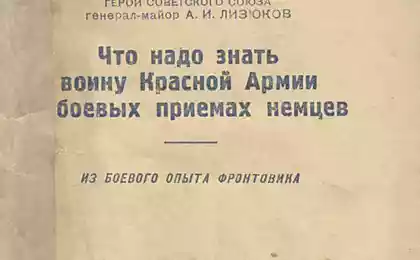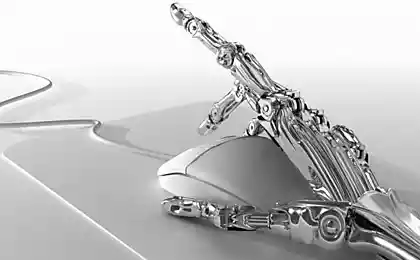168
Contrary to most, how experts shape our preferences
The term “expert” has been devalued due to the fact that the Internet provides everyone who wants to publicly express their opinion with an endless platform for discussion. The media has also contributed, which does not hesitate to call any professional who can comment on an event or phenomenon an expert.
Who is considered a true expert? Obviously, this person must meet at least the following three criteria:
(1) he/she engages in the activity professionally;
(2) he has a certain length of service in this field;
(3) his merits are recognized by the professional community.
But formal compliance with the criteria is not enough. The expert is valuable for his strategic vision, ability to quickly consider the full range of available opportunities and provide unorthodox interpretations of the situation.
It is proved that long-term specialization in any type of activity changes the structure of the brain - stable neural connections are established in certain departments. In this case, the expression “a fundamentally different vision of the problem” becomes not a metaphor, but an objective feature of cognitive activity. Thus, the experiment of neurologist Alvaro Pascual-Leone demonstrated that a person who began to learn to play the piano, in the first days of classes, there is a rapid increase in the area of the motor cortex of the brain. Eleanor Maguire and colleagues scanned the brains of those who wanted to become taxi drivers before and after the start of the vocational training program: those who successfully passed the exam experienced an increase in the hippocampus.
Daniel Gilbert, "Stumbling About Happiness"
The expert not only collects and stores information (a hard disk can cope with this task), but also subjects it to processing and rethinking. Depending on the exact wording of the request and the characteristics of the audience, it filters and presents information in a special way, which significantly affects the degree of digestibility of information and, ultimately, its usefulness. In other words, an expert helps us interpret our desires and understand what we really want.
At first glance, this assumption sounds paradoxical: if a person is not able to clearly articulate his desires, how can someone else do it for him? And where does it come from the idea that people have difficulty formulating their intentions and preferences? Alas, this is evidenced by numerous cases of work with focus groups, failed cases from the history of companies, as well as research by psychologists and marketers. People tend to adjust to the opinions of others, overestimate their emotional reactions and say exactly what is expected of them, not what should be said in reality.
Dan Gilbert, in his book Stumbling About Happiness, takes a closer look at the human tendency to overestimate expectations. We believe that an event of a positive nature will make us noticeably happier, and an unpleasant incident, on the contrary, will make us feel deeply unhappy. In fact, the level of happiness in each of us remains more or less unchanged throughout life and varies only slightly depending on specific events.
Introspection is a method of psychological research, which consists in observing one’s own mental processes without using any tools or standards. This is an in-depth study and cognition of human acts of his own activity: individual thoughts, images, feelings, experiences, acts of thinking as an activity of the mind structuring consciousness. Introspection has long been recognized as a subjective and unreliable method of psychological research. The way we try to describe or explain our behavior all too often leads to a distortion of the truth: we do not define ourselves, but our image of ourselves. But the tool, which psychologists have abandoned, continues to be actively used by marketers and, naturally, gives dubious results.
Jonah Lehrer, in How We Make Decisions, describes an interesting experiment: two groups of students were asked to rate several varieties of strawberry jam. The estimates of the first group coincided with the results of a study conducted by the authoritative publication Consumer Reports. Other tasks were complicated, asking not only to make a rating, but also to explain their choice. As a result, the students of the second group not only ranked the products differently, but also named the best jam that was objectively the worst.
Scientists working with theoretical constructs and small focus groups have the right to make mistakes. But when it comes to practice, the voice of the people is not always trusted. In 2009, Walmart asked shoppers if they thought the store space was too cluttered. They agreed, and the retail chain spent huge resources to make the room was “more air”: replaced the racks with more compact and removed piles of goods from the aisles. Contrary to expectations, the innovation turned into a drop in sales by a dizzying $1.85 million, and the authors of the project were immediately fired.
In the case of Walmart, the failure is partly due to the fact that the very wording of the question already forced consumers to answer. Perhaps if the question was open-ended (e.g., “What would you like to change in our storerooms?”), respondents would have made better suggestions. Or maybe they wouldn't. For such situations, a real expert is needed: he will be able to ignore the opinion of the focus group if, based on his own experience, knowledge and professional intuition, he is convinced that the solution proposed by him is correct. Democratic values are not always good for business, and often the opinion of one individual visionary is much more valuable than the opinion of a crowd.
Jonah Lehrer, How We Make Decisions
The Aeron chair was described by Malcolm Gladwell in his book Illumination. The power of instant solutions.” Herman Miller set out to create the most ergonomic office chair, which in its appearance was the exact opposite of what people wanted in their office. Despite strong criticism from potential buyers, Herman Miller began to produce Aeron. Soon this product became one of the most popular in its segment. As soon as the chair became a hit, consumers immediately changed their minds and began to give the previously unwanted piece of furniture the highest ratings.
Henry Ford once said, “If we asked customers what they wanted, they would ask for faster horses.” There is no evidence that Ford actually said this, but the implication is no less clear: predictive thinking and successful innovation remain the domain of experts. The modern economy is based on an unprecedentedly active development and use of new and new technologies created by experts. Open access to vast amounts of information and the ability to listen to the opinions of the majority are also important features of our time, but they do not negate the need for consultation with experienced specialists of a narrow profile. Experts are able to open up opportunities that we simply did not know existed.
Maxim Potashev: Financial analyst, master of the game "What?" Where? When?
“The true value of expert knowledge lies in the practical experience on which the expert rests. This experience forms an intuitive vision and a deep understanding of the problem that cannot be gleaned from open sources. And the expert always has an advantage in speed over the profane, armed with sources. The expert not only knows better where to look for the necessary information, but can often do without this search, keeping a lot in mind. Above all, it can effectively assess the reliability of sources and the reliability of information.”
Source: theoryandpractice.ru
Who is considered a true expert? Obviously, this person must meet at least the following three criteria:
(1) he/she engages in the activity professionally;
(2) he has a certain length of service in this field;
(3) his merits are recognized by the professional community.
But formal compliance with the criteria is not enough. The expert is valuable for his strategic vision, ability to quickly consider the full range of available opportunities and provide unorthodox interpretations of the situation.
It is proved that long-term specialization in any type of activity changes the structure of the brain - stable neural connections are established in certain departments. In this case, the expression “a fundamentally different vision of the problem” becomes not a metaphor, but an objective feature of cognitive activity. Thus, the experiment of neurologist Alvaro Pascual-Leone demonstrated that a person who began to learn to play the piano, in the first days of classes, there is a rapid increase in the area of the motor cortex of the brain. Eleanor Maguire and colleagues scanned the brains of those who wanted to become taxi drivers before and after the start of the vocational training program: those who successfully passed the exam experienced an increase in the hippocampus.
Daniel Gilbert, "Stumbling About Happiness"
The expert not only collects and stores information (a hard disk can cope with this task), but also subjects it to processing and rethinking. Depending on the exact wording of the request and the characteristics of the audience, it filters and presents information in a special way, which significantly affects the degree of digestibility of information and, ultimately, its usefulness. In other words, an expert helps us interpret our desires and understand what we really want.
At first glance, this assumption sounds paradoxical: if a person is not able to clearly articulate his desires, how can someone else do it for him? And where does it come from the idea that people have difficulty formulating their intentions and preferences? Alas, this is evidenced by numerous cases of work with focus groups, failed cases from the history of companies, as well as research by psychologists and marketers. People tend to adjust to the opinions of others, overestimate their emotional reactions and say exactly what is expected of them, not what should be said in reality.
Dan Gilbert, in his book Stumbling About Happiness, takes a closer look at the human tendency to overestimate expectations. We believe that an event of a positive nature will make us noticeably happier, and an unpleasant incident, on the contrary, will make us feel deeply unhappy. In fact, the level of happiness in each of us remains more or less unchanged throughout life and varies only slightly depending on specific events.
Introspection is a method of psychological research, which consists in observing one’s own mental processes without using any tools or standards. This is an in-depth study and cognition of human acts of his own activity: individual thoughts, images, feelings, experiences, acts of thinking as an activity of the mind structuring consciousness. Introspection has long been recognized as a subjective and unreliable method of psychological research. The way we try to describe or explain our behavior all too often leads to a distortion of the truth: we do not define ourselves, but our image of ourselves. But the tool, which psychologists have abandoned, continues to be actively used by marketers and, naturally, gives dubious results.
Jonah Lehrer, in How We Make Decisions, describes an interesting experiment: two groups of students were asked to rate several varieties of strawberry jam. The estimates of the first group coincided with the results of a study conducted by the authoritative publication Consumer Reports. Other tasks were complicated, asking not only to make a rating, but also to explain their choice. As a result, the students of the second group not only ranked the products differently, but also named the best jam that was objectively the worst.
Scientists working with theoretical constructs and small focus groups have the right to make mistakes. But when it comes to practice, the voice of the people is not always trusted. In 2009, Walmart asked shoppers if they thought the store space was too cluttered. They agreed, and the retail chain spent huge resources to make the room was “more air”: replaced the racks with more compact and removed piles of goods from the aisles. Contrary to expectations, the innovation turned into a drop in sales by a dizzying $1.85 million, and the authors of the project were immediately fired.
In the case of Walmart, the failure is partly due to the fact that the very wording of the question already forced consumers to answer. Perhaps if the question was open-ended (e.g., “What would you like to change in our storerooms?”), respondents would have made better suggestions. Or maybe they wouldn't. For such situations, a real expert is needed: he will be able to ignore the opinion of the focus group if, based on his own experience, knowledge and professional intuition, he is convinced that the solution proposed by him is correct. Democratic values are not always good for business, and often the opinion of one individual visionary is much more valuable than the opinion of a crowd.
Jonah Lehrer, How We Make Decisions
The Aeron chair was described by Malcolm Gladwell in his book Illumination. The power of instant solutions.” Herman Miller set out to create the most ergonomic office chair, which in its appearance was the exact opposite of what people wanted in their office. Despite strong criticism from potential buyers, Herman Miller began to produce Aeron. Soon this product became one of the most popular in its segment. As soon as the chair became a hit, consumers immediately changed their minds and began to give the previously unwanted piece of furniture the highest ratings.
Henry Ford once said, “If we asked customers what they wanted, they would ask for faster horses.” There is no evidence that Ford actually said this, but the implication is no less clear: predictive thinking and successful innovation remain the domain of experts. The modern economy is based on an unprecedentedly active development and use of new and new technologies created by experts. Open access to vast amounts of information and the ability to listen to the opinions of the majority are also important features of our time, but they do not negate the need for consultation with experienced specialists of a narrow profile. Experts are able to open up opportunities that we simply did not know existed.
Maxim Potashev: Financial analyst, master of the game "What?" Where? When?
“The true value of expert knowledge lies in the practical experience on which the expert rests. This experience forms an intuitive vision and a deep understanding of the problem that cannot be gleaned from open sources. And the expert always has an advantage in speed over the profane, armed with sources. The expert not only knows better where to look for the necessary information, but can often do without this search, keeping a lot in mind. Above all, it can effectively assess the reliability of sources and the reliability of information.”
Source: theoryandpractice.ru























